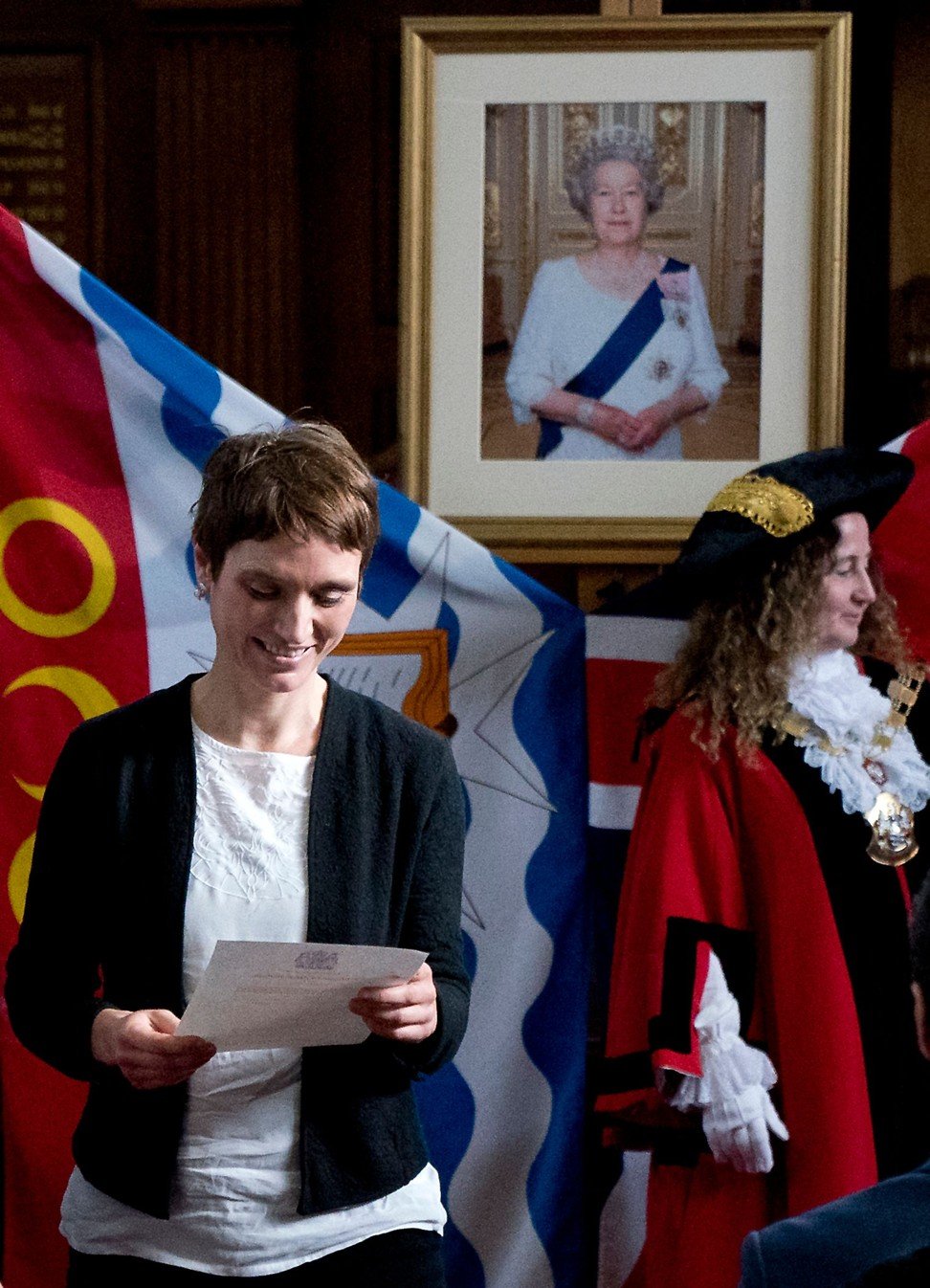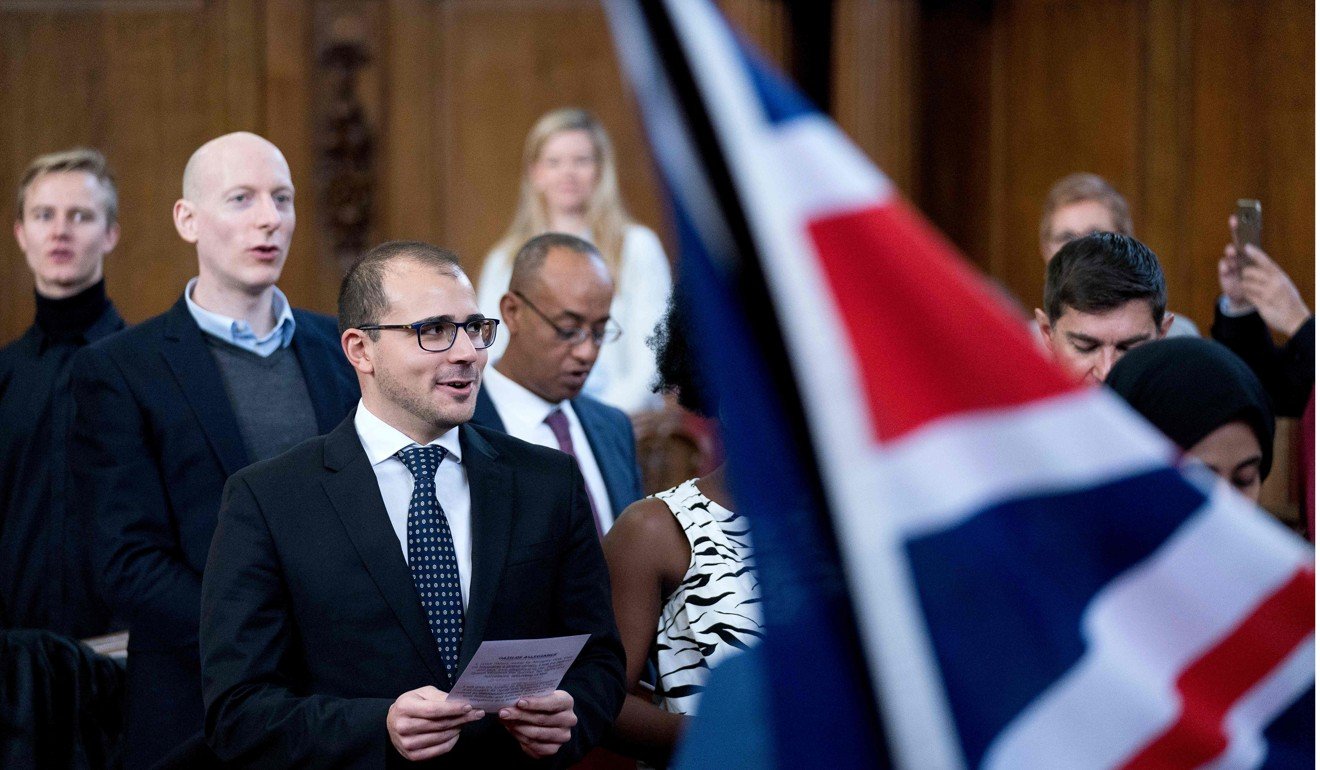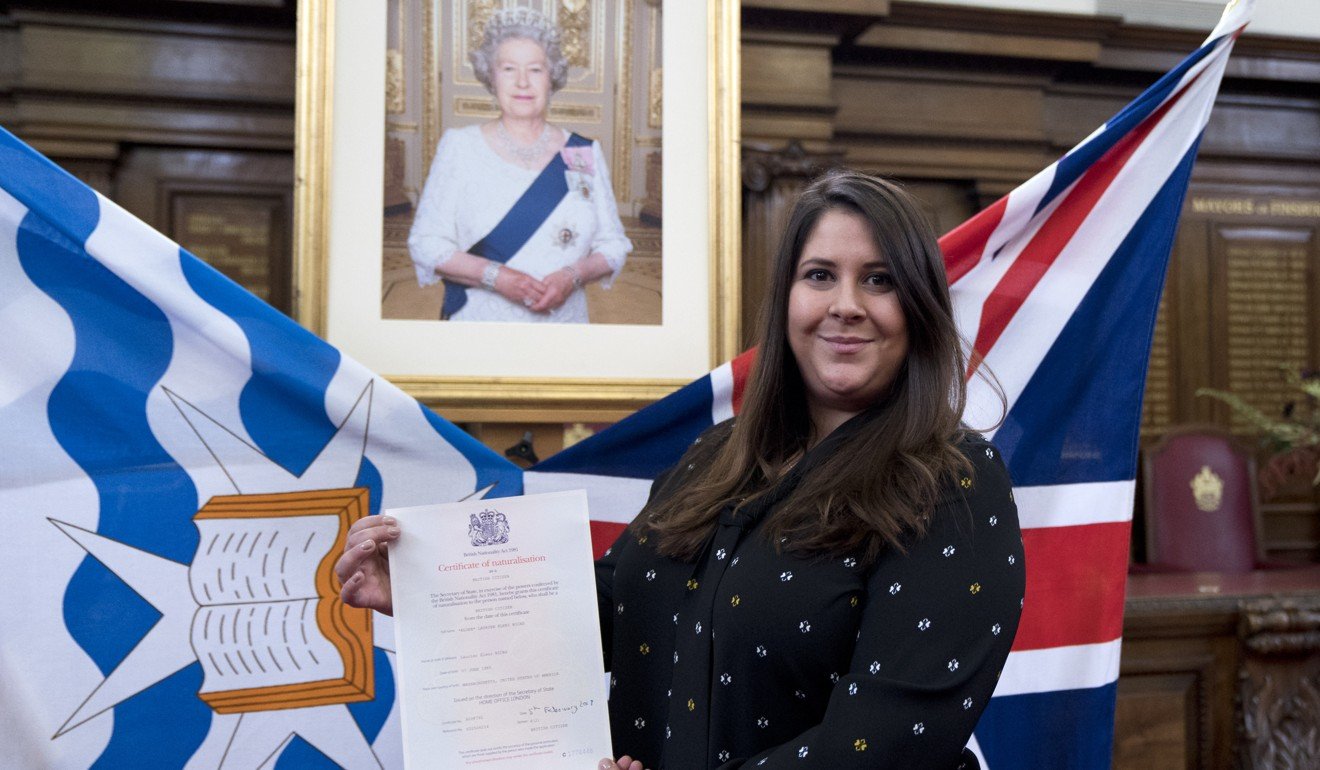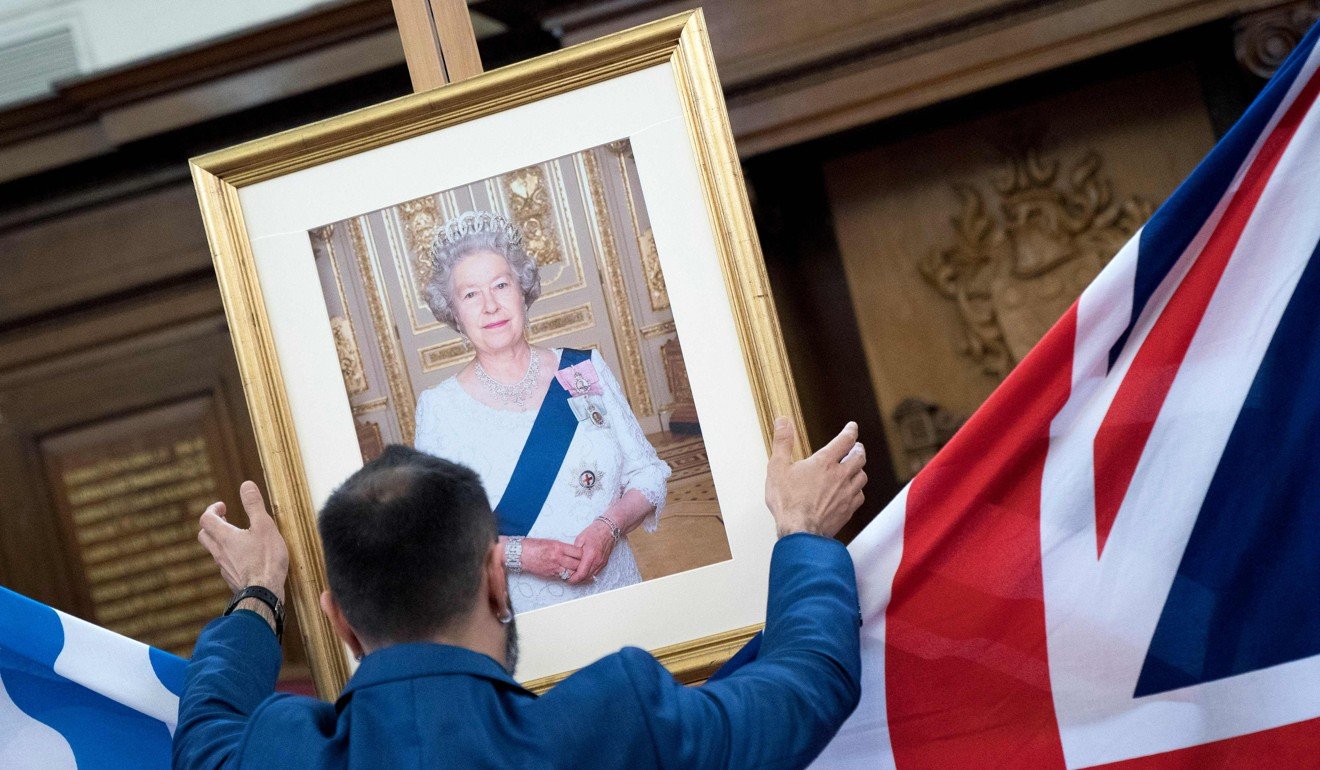
For Queen and country, they are becoming British in the age of Brexit
Songs by The Beatles play out as Britain’s newest citizens prepare to take their oath to queen and country – some of a growing number of EU nationals hoping to secure their futures after Brexit.
There is talk of queuing and cricket as the group gathers in front of the Union flag and a portrait of Queen Elizabeth in Islington Town Hall, north London.
“Up until the referendum it never occurred to me to take British citizenship,” said Almudena Lara, a 43-year-old Spanish charity worker.
Under EU freedom of movement laws, the mother-of-two has lived in Britain for 19 years but decided to formalise her status after the 2016 vote to leave the European Union.

I feel like I’m already part of our society. Although I still don’t understand the rules of cricket
Britain and the EU struck a deal last December to secure the rights after Brexit of around three million EU citizens living in Britain, and one million British expatriates.
But many people are wary of politicians’ promises, and applications by EU nationals for British citizenship more than doubled in 2017 compared to the previous year, from 15,460 to 38,528.
“I probably would have eventually done it – I see my future here,” said Julie Kvaerndrup, a 33-year-old Danish music teacher receiving her passport after six years in Britain.
“But the referendum pushed the decision. It made me think, what is going to happen in five, ten years from now?”
New citizens are required to attend a ceremony at their local town hall where they pledge allegiance to the queen and vow to uphold the rule of law and Britain’s democratic values.


He checks to make sure everyone says the oath in full, joking that he has the power to delay their citizenship if they miss a bit.
And highlighting their new rights, he references growing calls for a second Brexit vote, noting they can take part in “any new referendum”.
A South African with Portuguese parents, Goncalves has been overseeing such ceremonies since 2005 – and obtained his own citizenship in 2013.
He quips that being British, he can wear socks with sandals “and I like queuing”, before adding more seriously: “It just means that I belong here.”
The largest numbers of people applying for citizenship are from the Indian subcontinent and Sub-Saharan Africa, and the ceremonies reflect Britain’s multicultural society.
But a growing number are from EU nationals who would not previously have felt the need to apply.

“I’m gay, and I grew up in a country where I didn’t feel safe,” said 36-year-old Cypriot artist George, who asked that his last name not be published.
Clutching his certificate, he said: “Today, I felt safe. It’s not just about being British, it’s about finding a home that accepts me.”
Applicants must normally have lived in Britain for at least five years, and the process itself can be lengthy and expensive, costing more than £1,300 (US$1,800).
This includes a test on “Life in the UK”, which covers everything from history and politics, sports, culture and culinary habits in England, Scotland, Wales and Northern Ireland.
Andrei Misarca, a 26-year-old Romanian software engineer receiving his citizenship in Ealing in west London, said he did not expect life to change much.
“I already feel British,” he said, while conceding that his new passport might make travelling abroad a bit easier.
He has lived in Britain for more than seven years and like others, felt a “sense of urgency” to make his move permanent after the Brexit vote.
“Things can change. It’s better to have this reassurance rather than hoping for the best,” he said.
“And I feel like I’m already part of our society. Although I still don’t understand the rules of cricket.”

.png?itok=arIb17P0)